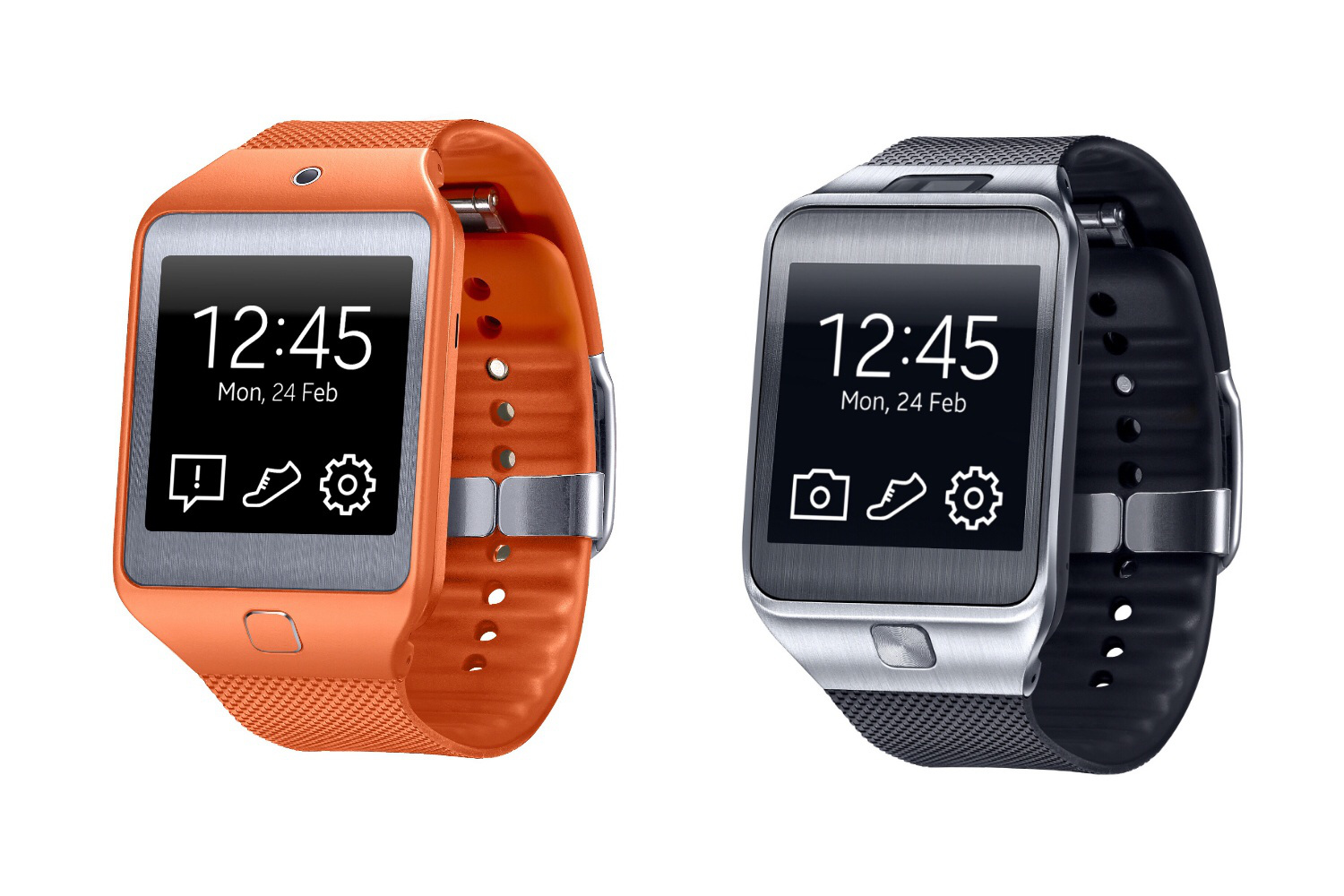
The huge Mobile World Congress show is starting in Barcelona, which means that the next few days will be jam-packed with announcements of new phones, tablets, wearables and other mobile gadgetry. One of the first big unveilings: Samsung’s Galaxy Gear 2 and Galaxy Gear 2 Neo, the second-generation versions of the smartwatch the company shipped less than six months ago.
There’s a lot that’s not radically new about the Gear 2 and Gear 2 Neo. They’re a millimeter thinner than the first one and a bit lighter, but the dimensions are similar overall, which makes them a wristfull. Like the first Gear, the Gear 2 has a camera, but this time it’s on the watch itself rather than the strap, so the watch can take swappable straps. The Gear 2 Neo is similar to the Gear 2, but doesn’t have a camera.
Both watches now sport heart-rate monitors and have the built-in ability to play music. They run a bunch of apps, such as CNN, Evernote, Expedia, Feedly, PayPal, Runtastic and ones for BMW, GM and Volkswagen cars. As with the first Gear, they work only with Samsung Galaxy phones, but the company says that “dozens” of models are supported.
Promised battery life is two to three days of typical use — not great, but better than the first Gear, which claimed only a day.
One of the most notable bits of news about the second-generation Gears is a major technology shift: Instead of running Google’s Android operating system, these ones use Tizen, an operating system which, like Android, is based on Linux. For years now, the OS and its several predecessors have always seemed to be on the verge of mattering in the mobile world, without ever quite managing to gain traction, but the the fact that Tizen is on these watches is a big deal.
Other Samsung mobile devices — phones, tablets, the first Gear watch — make up the most important single portfolio of Android-based products in the world. With reports that Samsung and Google have recently been at odds over Samsung’s desire to modify Android to its own liking, the arrival of two major Samsung products that don’t run Android makes for intriguing timing.
Switching operating systems for a line of watches is a much less momentous decision than it would be for smartphones. But of all the manufacturers that have built hardware businesses around Android, Samsung is the one that might have the ambition and resources to wean itself off Android if it ever felt the need. And if the company ever makes a serious effort to do so, it’ll likely be in favor of Tizen.
If nothing else, it’ll be interesting to see if Tizen-powered Galaxy Gears get a warmer reception than the first Gear, which got mostly meh-to-poor reviews.
The new Galaxy Gear watches are due to show up in April. Samsung hasn’t said how much they’ll cost.
More Must-Reads from TIME
- Why Trump’s Message Worked on Latino Men
- What Trump’s Win Could Mean for Housing
- The 100 Must-Read Books of 2024
- Sleep Doctors Share the 1 Tip That’s Changed Their Lives
- Column: Let’s Bring Back Romance
- What It’s Like to Have Long COVID As a Kid
- FX’s Say Nothing Is the Must-Watch Political Thriller of 2024
- Merle Bombardieri Is Helping People Make the Baby Decision
Contact us at letters@time.com